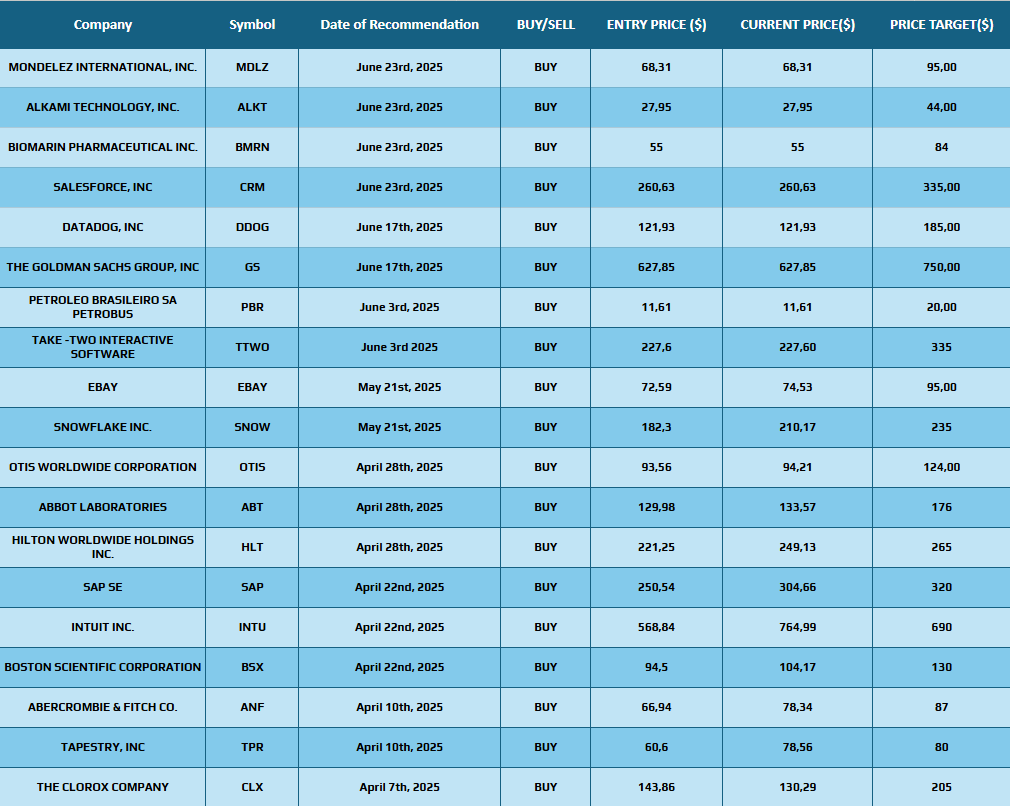
Date Issued – 8th July 2025
Preview
Shein pivots to Hong Kong after regulatory deadlock in London, Trump revives aggressive tariffs on 14 countries and India rattles the high-frequency trading world with a crackdown on Jane Street. Meanwhile, Asian stocks sway under geopolitical pressure and the U.S. tax code faces sweeping changes. From trade wars to tech disruption, each move has deep implications for capital flows, investor confidence and global risk exposure.
Shein Files Hong Kong IPO to Pressure UK Regulators
Shein has filed confidentially for a Hong Kong IPO after failing to get regulatory approval for a London listing. Disagreements between UK and Chinese regulators center on risk disclosures, especially concerning Shein’s supply chain links to Xinjiang. The move signals mounting frustration as Shein also faces regulatory heat from the EU and U.S. over trade practices and ESG concerns. Hong Kong may offer an alternative.
Investment Insight:
Shein’s IPO saga reflects geopolitical risk for global investors in Chinese firms. While a Hong Kong listing could unlock value, persistent ESG red flags and regulatory scrutiny raise governance concerns. Investors should expect valuation volatility and weigh reputational risk. Long-term upside depends on Shein’s ability to improve transparency, meet global standards and adapt to shifting trade frameworks in the U.S., EU, and UK.
Trump Announces New Tariffs on 14 Nations
Starting August 1, President Trump will impose steep tariffs – ranging from 25% to 40% – on imports from 14 countries, including Japan, South Korea and Indonesia. The move revives his “reciprocal tariff” agenda after a three-month pause and reflects growing trade protectionism. Trump’s action aims to correct trade deficits but risks global retaliation. Financial markets responded negatively, with U.S. indices closing sharply lower on tariff concerns.
Investment Insight:
Trump’s tariff hike signals rising global trade friction – bearish for exporters, logistics firms and global equities. Investors should brace for near-term volatility in manufacturing, tech and automotive stocks. Countries hit hardest may retaliate, increasing risks for multinationals. Stay cautious on emerging markets with high U.S. export exposure. Long-term plays could emerge in domestic reshoring and supply chain resilience themes.

Australia Holds Rates, Awaits Clearer Inflation Data
The Reserve Bank of Australia surprised markets by keeping its policy rate steady at 3.85%, despite expectations of a rate cut. The central bank cited the need for more data to ensure inflation is sustainably headed toward its 2.5% target. Although inflation has cooled to a four-year low, stronger-than-expected recent CPI figures led to caution. Markets reacted with a slight equity dip and a stronger Australian dollar.
Investment Insight:
The RBA’s pause underscores uncertainty in Australia’s monetary outlook. Rate-sensitive sectors like real estate and consumer discretionary may face continued pressure. However, the Aussie dollar’s strength signals market confidence in eventual easing. Investors should monitor upcoming CPI data and trade developments – especially in light of U.S. tariffs – which could justify rate cuts. A likely August move may present upside for bonds and domestic equities tied to stimulus-sensitive sectors.
CoreWeave Buys Core Scientific in $9B Stock Deal
CoreWeave, a fast-growing AI cloud infrastructure firm, will acquire data center operator Core Scientific in an all-stock deal worth $9 billion. The move secures 1.3 gigawatts of capacity, eliminates $10 billion in future rent obligations and boosts CoreWeave’s real estate footprint. The deal, expected to close in Q4 2025, allows CoreWeave to convert crypto mining infrastructure into AI-ready sites, improving efficiency and reducing capital costs.
Investment Insight:
This deal positions CoreWeave as a serious challenger in AI cloud infrastructure, deepening its vertical integration. Eliminating lease costs and repurposing crypto facilities enhances margins. However, the sharp drop in Core Scientific’s stock suggests market skepticism over execution risk and AI conversion costs. Long-term, this could benefit investors favoring infrastructure-heavy AI plays. Consider watching competitors like AWS or Equinix for similar strategic shifts or M&A moves.
EU Probes Robinhood Stock Tokens After OpenAI Warning
Robinhood’s new tokenized stock product is under review by the Bank of Lithuania, its lead EU regulator, after OpenAI publicly disavowed the offering. Robinhood claims its tokens offer blockchain-based exposure to private companies like OpenAI and SpaceX. However, OpenAI clarified the tokens do not represent equity or have its approval. Regulators now await details on the product’s structure and investor communication to assess compliance with EU laws.
Investment Insight:
Robinhood’s stock tokens venture risks regulatory pushback and reputational damage. While tokenization could democratize access to private equity, lack of issuer endorsement raises legal and ethical concerns. Short-term, the probe may dampen Robinhood’s European expansion. For investors, this highlights risks in blockchain-finance hybrids. Competitors offering compliant tokenized assets (like Securitize or Avalanche) may gain traction.
Conclusion
This week’s headlines underscore a deeper trend: policy risk is no longer background noise – it’s a market force. Whether it’s Trump’s unpredictable tariff diplomacy, Shein’s battle for legitimacy or India’s assertive regulatory shift, political decisions are creating volatility and opportunity in equal measure. Investors must track not only earnings and inflation, but also executive orders, trade letters and cross-border legal clashes. Staying nimble, globally aware and diversified has never been more critical.
Upcoming Dates to Watch
- July 9th: FOMC Meeting Minutes
- July 10th: U.S. Jobless Claims + German CPI
Find below some of our Buy/Sell Recommendations. Balfour Capital Group is a distinguished global boutique investment management firm with $350 million AUM and over 1000 Clients.

Disclaimer: This post provides financial insights for informational purposes only. It does not constitute financial advice or recommendations for investment decisions.




